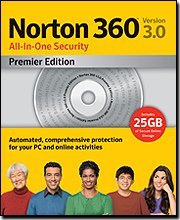Top 5 ways to keep your computer error free
The errors computer users will experience range from halts, and exe errors to a non-responsive system that crashes on several occassions and the sad news is that these errors are almost impossible to avoid.
But fortunately, there are a few things you can do to dramatically reduce the occurrance of these issues.
1. Update your system frequently
Try your best to install the latest Windows updates; these contain valuable security updates and improve the stability of your system.
It is also a good idea to keep your installed software updated with the latest version. Every time software is updated, it fixes internal bugs. These internal bugs can easily create DLL errors; DLL files are types of shared files used by programs to perform similar actions, but if an unstable program crashes with a shared DLL file in memory, the DLL file could become damaged and corrupt processes.
2. Get rid of old unused junk
Do you think those old programs you never use don’t take up resources? Fact is they are the biggest waste of resources on your computer.
First of all, they are wasting hard drive space and at some point in time you are going to run out of space. Additionally, many programs will automatically update themselves in the background and run other processes, wasting system resources on completely useless tasks.
To get rid of unused programs:
- Click Start, then run… (Windows XP)
- Click Win R (Windows Vista)
In the dialogue box type appwiz.cpl, this takes you to a list of installed programs, go through it uninstall any programs you are not using.
You should also take steps to remove old files and duplicate data, aside from wasting space they will slow down Data Access Time which has a negative impact on performance.
Another great way to free up some hard drive space is to use the Windows Disk Cleanup tool:
· Click Start > All Programs > Accessories > System Tools > Disk Cleanup
This allows you to get rid of all those temporary files no longer in use, they can be old program files, cookies and internet files and the trashbin, it’s not going to drastically improve performance, but you will free up some hard drive space.
3. Take good care of the hard drive
No single component on a computer can be classified as the most important as there are so many parts vital to any computer system, but the hard drive however comes pretty close. This small box stores everything and you need to keep it in shape to prevent it from losing or damaging data.
But the way you access the hard drive, with files and folders, and the way Windows does is entirely different.
You see Windows accesses the surface of your hard drive, and when files are deleted and moved around this surface can become a little messy, so you should periodically use Disk Defragmentation which reorganizes the physical locations of data, making it much more accessible for Windows.
Click on My Computer, and then right click the hard drive you want to defragment and select Properties in the drop down menu. In the pop-up window select Tools and then Defragment to begin the defragmentation process.
4. Take proper care of hardware devices
Each and every piece of hardware attached to your computer has a driver installed with it, even the laptop batteries and the on/off button. What these drivers do is work as a communications link between Windows and hardware devices, in simpler terms, the drivers tell the software how the hardware works, and if you have missing or outdated drivers your hardware will begin to malfunction.
Therefore it is important to always have the latest drivers installed on your system, but driver rarely auto updates so you need to do it yourself.
You can find most of the drivers on the hardware manufacturers websites, just be sure you get the right drivers as there will more than one driver. Or you can opt for a much simpler solution and get a driver update utility and update all your drivers automatically.
5. Keep malware of your computer
Reports say that close to 90% of home computer are infected with some type of malware, and these unwelcome programs can quickly render your computer completely useless or even worse; affect your personal life. So it is very imoprtant to take the neccessary steps to ensure you are protected from the intrusions.
First of all you should have and antivirus applications installed and scanning your computer at set intervals, it is also important to keep your antivirus updated with the latest virus definitions to keep you protected from the latest threats.
Another crucial software you will need to stay protected is a firewall, a firewall will block all attempts at accessing your computer, successfully keeping hackers and bots away from your computer, passwords and personal files
But software alone is not guaranteed to keep malware off your computer; malware can be deceptive and can hide in seemingly legit files, like hiding viruses in images and email attachments.
Just by taking the 5 steps above you will be miles ahead of most Windows users in terms of both safety and computer maintenance, and your computer will not only perform better as a result, but it will live significantly longer.
So take what you have learned, apply it and watch the positive change happen.

